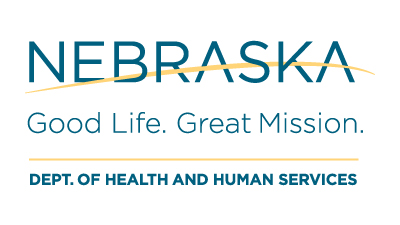![]()

Experiencing a stressful event, such as the effects of severe weather, can pose both behavioral health and physical challenges. The Nebraska Department of Health and Human Services (DHHS) Division of Behavioral Health (DBH) would like to highlight resources and information about coping with stressful events to improve mental health and build stronger, more resilient communities.
Abnormal or tense events can cause individuals, their families, and peers to experience a wide range of emotions that can be challenging to understand and process. After severe weather, it can be overwhelming to relocate, deal with insurance, rebuild a home, clean up a property, find provisions, take care of family members or loved ones, and face an uncertain future. It is natural to experience shifts in mood and energy levels or experience increased feelings of fear in daily life.
Support from family members, friends, and the community during times of increased stress is vital to helping individuals address challenges, cope, rebuild, and be resilient.
“We understand Nebraskans are hurting after recent storms, and may need extra support,” said Tony Green, Interim Director of Behavioral Health. “During stressful events, it is important to take care of yourself and your loved ones. A strong support system and support from community members during times of increased stress are incredibly valuable to maintaining our mental health and overall well-being.”
Here are some tips for coping with a stressful event to improve mental wellness:
- Reach out to someone you trust and talk about how you are feeling.
- Limit your consumption of news. The constant replay of audio, images, or videos of the event can increase stress and anxiety.
- Understand there will be changes. Events, such as severe weather, can destroy homes, schools, businesses, places of worship, or other establishments in your daily routine and separate people from familiar places, peers, and activities. The effects of these experiences can cause injuries, both mentally and physically.
- Go outside when it is safe. Exercising and taking care of pets can provide comfort, peace, and rejuvenation.
- Try your best to eat healthy and avoid turning to alcohol and drugs as a way to cope.
- Avoid making major life decisions. In times of upheaval, it can be difficult to think clearly. Trying to make additional large life decisions can add extra stress to an already stressful situation.
- Ask for help when you need it. What may seem like “everyday stress” can actually be depression, anxiety, or substance misuse. It is okay to ask for help from family, friends, a professional, or a support group.
Resources available before and after stressful events:
- Disaster Distress Helpline: 1-800-985-5990 (oprime dos para Español) or text TalkWithUs to 66746
- Nebraska Family Helpline – Any question, any time. 1-888-866-8660
- For a mental health crisis: Call or text 988, or chat 988lifeline.org
- Rural Response Hotline, 1-800-464-0258
- For an emergency call 911
- For information on available resources call the Nebraska Emergency Management Agency: 402-817-1551
- Economic Assistance: 800-383-4278
- NE Network of Care for Behavioral Health: https://portal.networkofcare.org/NebraskaBehavioralHealth
- Substance Abuse and Mental Health Services Administration Find Treatment Website: https://findtreatment.gov/
